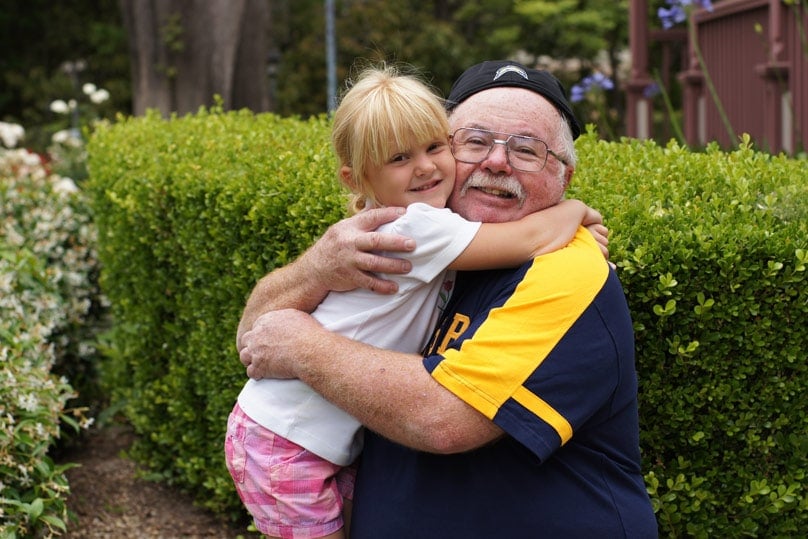
WIN a copy of Girl Wise or Wise Guys!
To be in the running email your name and contact details to [email protected] and identify which book you would like to win in the subject line.
By Sharon Witt
We all want to raise strong and resilient children and teenagers.
Resilience is best described as the ability to bounce back after a tough or negative experience, to adapt to difficult circumstances, learn from challenging situations and become stronger for it.
It can be challenging to help our children navigate tough experiences and to bounce back from mistakes. But it is doable! Here are some tips for raising resilient kids:
- A Sense of belonging
We know that when our children feel that they belong they feel safe and secure. Fostering this sense of belonging is important in our family unit, whether that be one where both parents reside together, or in two household families. Ensuring that your child/teen has a space they can retreat to in their own home is important as well as generally feeling heard, cared for and valued for who they are.

- Family rituals
Our children love rituals as it creates a sense of belonging and tradition. An important family ritual that is falling by the wayside in our busy lifestyles is simply sitting around the family table and enjoying a meal together. Even if this is not possible every night, committing to eating together regularly fosters belonging and connection for family members. Simply asking the question of your children ‘What went well for you today?’ can foster great communication, and remind your children that you are interested in their daily lives.
- Fostering relationships
Children thrive best when they have strong bonds and relationships with at least two strong adults in their lives. Never underestimate the importance of helping your child foster relationships with extended family, including grandparents, aunts, uncles or older cousins. As our children grow and enter adolescence, there may well be times that they wish to seek out opinions and advice from people who are not their parents. Having the time to nurture additional relationships can provide amazing support if your child goes through a tough period.
- Building strong values
We can help our children build resilience by helping them develop strong values and morals. How do we do this? We model it. Our children and teens ‘Can’t be what they can’t see.’ If you want them to be respectful humans, they need to see us demonstrating respect to those we encounter. If we want our children to be generous towards others, it’s important that we model what this looks like for them.

- Learning from mistakes & failures
It is inevitable that our children will make mistakes, as we all do. Helping our children and teens learn that mistakes are going to happen and they can be recovered from, is crucial. Encouraging our children that mistakes and failures are brilliant learning opportunities can help change the focus.
Also, being transparent about our own mistakes and times we have failed helps to reassure our children that it is okay to make mistakes, as it teaches us different ways of approaching things. Remind your child that there is no mistake they can make that is so bad that they can’t come to you, at any time and that you can always work through a solution together.
And it’s important that when they do follow through with this, that you act with compassion and guidance, rather than anger.
- Finding their spark
Our children develop an important protective factor in resilience when they participate in activities that ignite their spark and bring them a sense of fulfilment and joy. Encourage them to pursue enjoyable activities such as drawing, playing an instrument, participating in sport, writing, painting, exploring etc.
- Be consistent
Our children require consistency and thrive when we instill this. Setting rules and boundaries reinforces consistency and ensures our children and teens know that they are safe and secure and that we care about their welfare. Consistency in the home and at school also breeds resilience.

- Optimistic thinking & self-talk
Our self-talk can be critical in building resilience. It is easy to get into a negative habit of speaking to ourselves in a negative way and thus, building a ‘failure’ mentality. We can all be guilty of this, so it is important to teach our children to develop an optimistic mindset which is built into their vocabulary.
- A soft place to land
All young people need a sense of security in their environment – a place that feels safe and secure. For our children, we would hope that home would be their soft place to land, the place where they can feel they belong and can let off stress and steam when needed. For some children, school may be this place, or for others, their grandparents, or a close friend’s home.
- Model resilience
If we want to raise strong, optimistic and resilient children, it is important that our children see what this looks like. When we make mistakes, demonstrate that it isn’t the end of the world and you can move forward, look after your own health, get enough sleep, learn to accept that life can be tough but we have the resources built within us to love through it and become stronger for it.
Sharon Witt has been immersed in the adolescent world for more than 26 years as a secondary teacher in Melbourne. She is the author of 12 books written for young people around the topics of resilience, to help guide them through many of the issues they face in early years, including the best-selling Teen Talk and the recently released Girlwise and Wiseguys series.
Sharon has also developed a series of ten-week programs for building resilience in our children for use in primary schools in both Middle Primary and Senior Primary. Details at: www.sharonwitt.com.au
